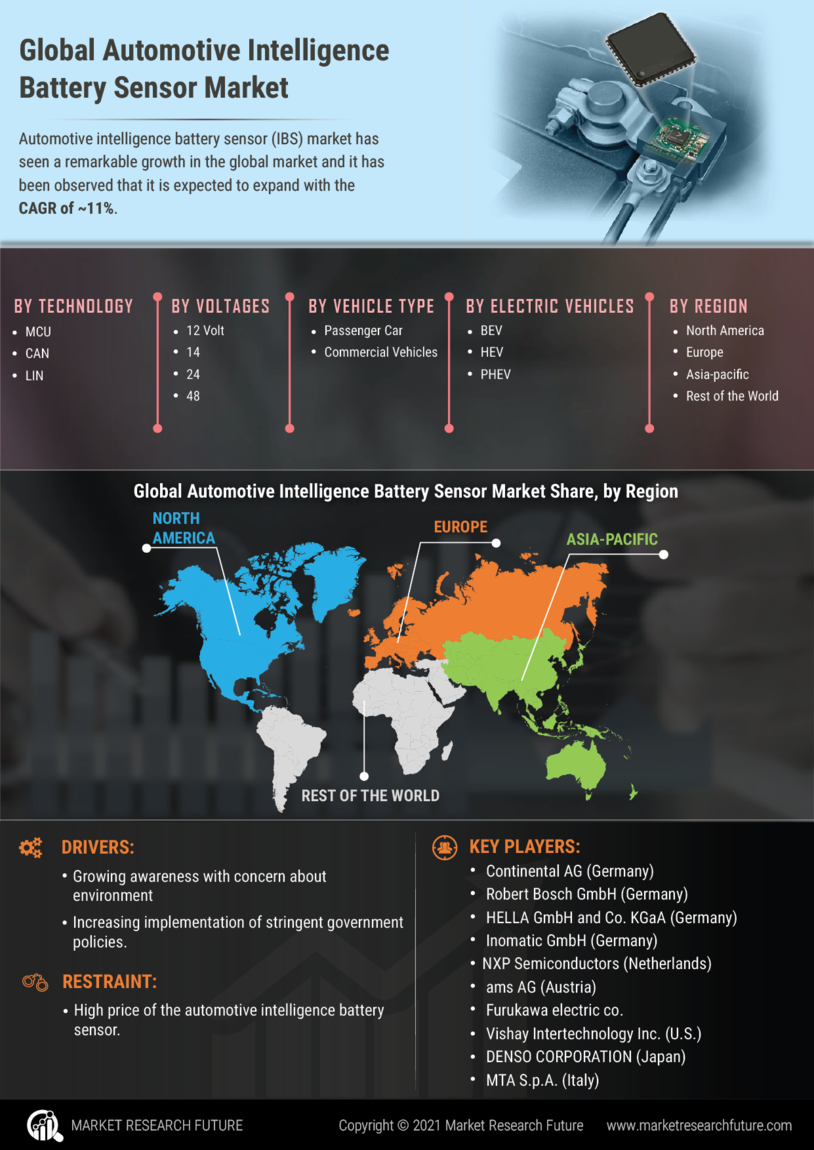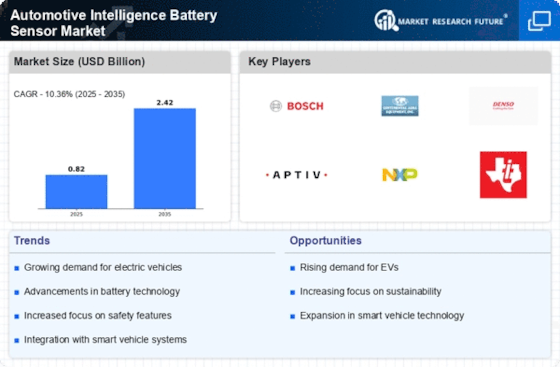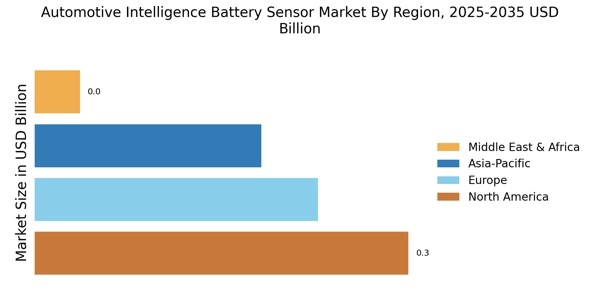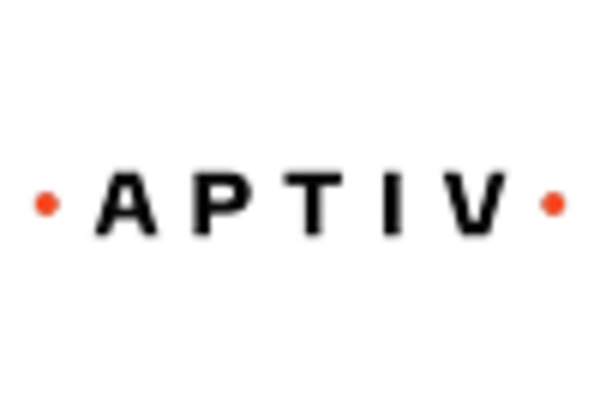Rising Demand for Electric Vehicles
The increasing adoption of electric vehicles (EVs) is a primary driver for the Automotive Intelligence Battery Sensor Market. As consumers and manufacturers shift towards sustainable transportation solutions, the need for advanced battery management systems becomes paramount. In 2025, it is estimated that the EV market will account for a substantial share of the automotive sector, with projections indicating that EV sales could reach over 30 million units annually. This surge necessitates the integration of sophisticated battery sensors to monitor performance, enhance safety, and extend battery life, thereby propelling the growth of the Automotive Intelligence Battery Sensor Market.
Regulatory Support for Emission Reduction
Government regulations aimed at reducing carbon emissions are driving the Automotive Intelligence Battery Sensor Market. Many countries are implementing stringent emission standards, which encourage the adoption of electric and hybrid vehicles. This regulatory environment fosters the need for advanced battery technologies that can efficiently manage energy consumption and emissions. As a result, the demand for automotive intelligence battery sensors is expected to rise, as these sensors play a crucial role in ensuring compliance with environmental regulations. The market is likely to see an increase in investments from automotive manufacturers to integrate these sensors into their vehicles, further stimulating growth in the Automotive Intelligence Battery Sensor Market.
Consumer Awareness and Demand for Safety Features
There is a growing consumer awareness regarding vehicle safety, which is influencing the Automotive Intelligence Battery Sensor Market. As consumers become more informed about the importance of battery health and performance, they are increasingly seeking vehicles equipped with advanced safety features. Battery sensors that provide critical information about battery status and potential hazards are becoming essential components in modern vehicles. This trend is likely to drive manufacturers to prioritize the integration of intelligent battery sensors, thereby enhancing the overall safety and reliability of electric and hybrid vehicles. Consequently, the Automotive Intelligence Battery Sensor Market is expected to experience significant growth as consumer preferences evolve.
Integration of Internet of Things (IoT) Technologies
The integration of Internet of Things (IoT) technologies into the automotive sector is emerging as a key driver for the Automotive Intelligence Battery Sensor Market. IoT-enabled battery sensors facilitate seamless communication between vehicles and external systems, allowing for enhanced monitoring and management of battery performance. This connectivity enables predictive maintenance, which can prevent battery failures and optimize energy usage. As the automotive industry increasingly embraces IoT solutions, the demand for intelligent battery sensors is anticipated to rise. Market analysts project that the IoT in automotive applications will grow substantially, further propelling the Automotive Intelligence Battery Sensor Market in the coming years.
Technological Advancements in Battery Management Systems
Technological innovations in battery management systems (BMS) are significantly influencing the Automotive Intelligence Battery Sensor Market. The development of smart sensors that provide real-time data on battery health, temperature, and charge levels is becoming increasingly prevalent. These advancements not only improve the efficiency of battery usage but also enhance the overall performance of electric and hybrid vehicles. As manufacturers invest in research and development, the market for intelligent battery sensors is projected to grow at a compound annual growth rate (CAGR) of approximately 15% through the next five years, indicating a robust demand for these technologies within the Automotive Intelligence Battery Sensor Market.

















